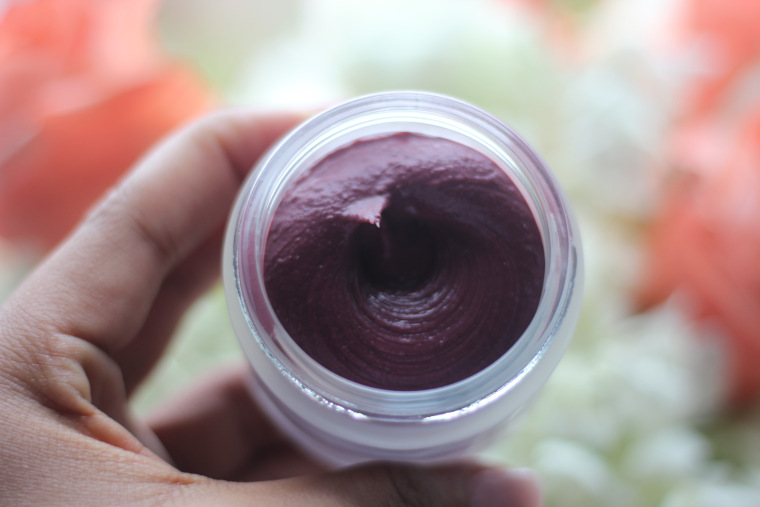Blueberries can lower inflammation and help clear acne. Chronic inflammation is a state where a chronically overactive immune system launches far too powerful inflammatory assaults all over the body.
It’s the single most important disease behind acne. Overly powerful inflammatory responses against p.acnes bacteria in your pores reddens and swells the surrounding tissues, turning it into acne.

Lowering chronic inflammation, not destroying p.acnes with benzoyl peroxide, should be your goal.
Blueberries lower inflammation well according to this study that tested the effect of wild blueberries, AKA bilberries, on rats fed a high fat diet. They were fed blueberries as either 5% or 10% of their diet. The scientists measured their levels of inflammatory cells and inflammatory immune system cytokines after 13 weeks.
There was a big reduction in pro-inflammatory responses, and levels of inflammatory chemicals such as T helper type 1 cells. Their conclusion was: “Bilberries reduce the development of systemic inflammation and prevent the progression of chronic hypertension”.
In another study, 25 well trained athletes were given 250 grams of blueberries per day for six weeks, and 375 grams of blueberries one hour before a 2.5 hour running session. Blood, urine and muscle samples were collected and levels of inflammatory cytokines were analysed.
Compared to the control group, the athletes fed blueberries enjoyed much higher levels of the anti-inflammatory chemical interleukin-10. The blueberry group also displayed higher levels of natural killer (NK) cells which, despite their sinister sounding name, actually reduce inflammation in the body.
The scientists concluded that “this study indicates that daily blueberry consumption for 6 weeks increases NK cell counts, and acute ingestion… increases anti-inflammatory cytokines”.
The evidence that blueberries slash inflammation is strong, both by inhibiting pro-inflammatory chemicals behind acne and increasing anti-inflammatory chemicals which soothe the damageand prevent acne.
Blueberries also contain an interesting chemical called pterostilbene, which is currently being investigated and shows tentative but powerful properties against acne. In this article, we discussed how resveratrol is potent at inhibiting a vast swathe of inflammation. Specifically, resveratrol inhibits NF-KappaB, a master molecule that stimulates many pro-inflammatory chemicals which cause acne.
The pterostilbene in blueberries is a chemical analog of resveratrol; it is structurally very similar. Hence, pterostilbene has also been shown to have anti-inflammatory properties; in this study it inhibited the immune chemical TNF-a. In this study pterostilbene inhibited both COX-2 and was concluded to have an anti-inflammatory effect in the body.
Furthermore, pterostilbene is similarly powerful but is far better absorbed than resveratrol. Pterostilbene has an absorption rate of 80% in the gut, compared to 20% for resveratrol (study). Its half-life is seven times longer, 105 minutes against 14 minutes, so it exerts its healthy effects for much longer.
Pterostilbene is also believed to inhibit the gene responsible for inflammation in the gut, the type of inflammation that causes colon cancer. That should help acne too because gut inflammation causes food allergies and leaky gut syndrome.

Pterostilbene is still being furiously investigated, somewhat unsurprisingly, since the resveratrol supplement industry is now booming. A supplement form has been patented and the market might explode over the next few years, but for us that’s totally irrelevant because you can easily get this compound from either blueberries or grapes.
Oxidative stress and its role in acne is very simple. It’s when there are more free radicals in your bloodstream than your antioxidants can tackle, and hence your antioxidants get massively depleted. Some antioxidants such as vitamin E and vitamin A are vital for preventing acne, by providing inbuilt defences to sebum which prevent it from mutating into a highly comedogenic form called squalene peroxide.
Basically, high oxidative stress is a number one cause of acne, ranked alongside chronic inflammation.
Blueberries reduce oxidative stress superbly and they achieve this because they contain tons of antioxidants. They’re not the best fruit for antioxidants ever, but they’re one of the best. 100 grams receives an ORAC score of 4669 and wild blueberries (bilberries) are even higher at 9100.
Blueberries contain hydroxycinnamic acids like caffeic, ferulic, and coumaric acid, anthocyanins like malvidins, delphinidins, pelargonodins, peonidins and cyanadins, and flavanols such as kaempferol, quercetin, and myricetin. Many of these have unique powers for acne; quercetin is especially potent at lowering gut inflammation and hence the risk of acne from food allergies.
Myricetin is believed to help acne by increasing the uptake of glucose into energy stores, thus lowering your blood sugar levels. In fact, myricetin has been used therapeutically for type 2 diabetes in Northern Brazil for years now. The small quantity of vitamin C provides an extra bonus as it’s the number one water-soluble antioxidant in the human body.

Blueberry acne mask
Ingredients:
- 1 cup fresh or thawed blueberries
- 1/2 cup pulverized oatmeal powder
- 1 teaspoon lemon juice
- 1 teaspoon turmeric powder
Directions:
Mix well, apply to face for 10 – 15 minutes, twice daily


